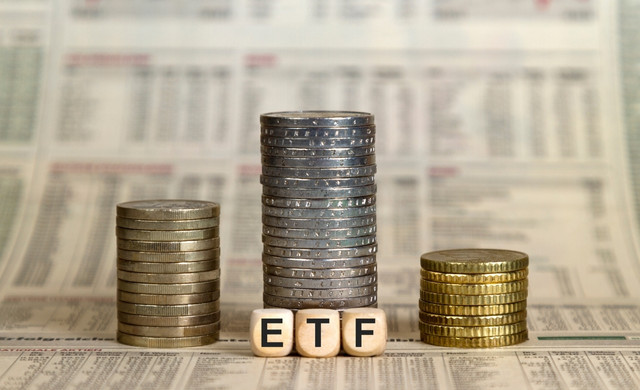
The explosion of interest in artificial intelligence has ignited a fervent rush into AI-themed Exchange-Traded Funds (ETFs), with investors eagerly seeking new avenues to capitalize on the rapid advancements in AI technology. This surge in interest follows the meteoric rises of AI pioneers like Nvidia, which has become synonymous with the AI revolution. The total assets under management for AI-themed ETFs in the United States have ballooned to $6.88 billion as of the end of February, up from $2.55 billion just a year prior, according to Morningstar data.
Will Rhind, the founder and CEO of GraniteShares, notes, “It’s still so early in the evolution of this category … that investors are still sorting through the possibilities.” This enthusiasm mirrors past frenzies over transformative technologies, from the dotcom era to the rise of electric vehicles, which have introduced significant new industries and created substantial wealth for both entrepreneurs and average investors.
However, history also shows that not all companies that shine during such booms maintain their luster, suggesting some current AI favorites might eventually see their stock prices wane. Yet, for the moment, Nvidia remains at the forefront, with its chips considered the pinnacle in AI technology.
The GraniteShares 2x Long NVDA Daily ETF, aiming to deliver twice the daily return of Nvidia’s shares, saw its assets double to $2 billion earlier this month, riding on Nvidia’s nearly 80% share price surge this year, following a tripling in 2023. Nvidia’s recent announcement of the Blackwell B200, an AI chip claiming to be up to 30 times faster than its predecessor, has only added to the fervor.
Smaller AI-themed ETFs have also seen significant growth. The Themes Generative Artificial Intelligence ETF, for instance, tripled its assets to about $20 million from $7.5 million earlier this month. With seven of the 18 diversified AI-related ETFs tracked by Morningstar launched in the last three years, and an eighth reoriented to focus more on AI, the sector has attracted $2.68 billion in inflows over the past 12 months—nearly double that of global real estate ETFs.
The booming interest in AI has contributed to the S&P 500’s nearly 8% gain year-to-date, with AI beneficiaries like Nvidia and Microsoft playing significant roles. However, some investors are diversifying their exposure away from stocks like Nvidia, which have already seen substantial gains. For instance, the Global X Artificial Intelligence and Technology ETF, which limits Nvidia exposure to 3%, has tripled in size over the last three months, whereas its Robotics and Artificial Intelligence ETF, with over 20% invested in Nvidia, grew by 20%.
Investors are now exploring new sectors that could benefit from AI, according to Rene Reyna, head of thematic ETF strategy at Invesco. “The conversations we have with investors don’t focus on finding the next Nvidia, but more on recognizing that these technologies are changing the landscape and finding ways to get exposure to some of this growth,” he said.
Morgan Stanley analysts recently identified 480 stocks potentially benefiting from AI, including less obvious choices like Walmart and Caterpillar, and suggested exploring “less crowded sub-themes” like AI integration in smartphones.
ETF providers are responding by offering a wide array of AI-themed funds. For example, the Robo Global Robotics & Automation ETF includes companies expected to gain from AI, like Intuitive Surgical, while the Roundhill Generative AI & Technology ETF focuses on potential generative AI beneficiaries such as Salesforce.com and Marvell Technology.
However, not all AI-themed ETFs have found success. The WisdomTree US AI Enhanced Value ETF, which employs AI in its portfolio selection, has seen $48.26 million in outflows over the last 12 months and underperformed against the S&P 500, partly due to a lack of Nvidia and other AI-related stocks in its holdings.

It looks like you are not logged in. Click the button below to log in and keep track of your recent history.